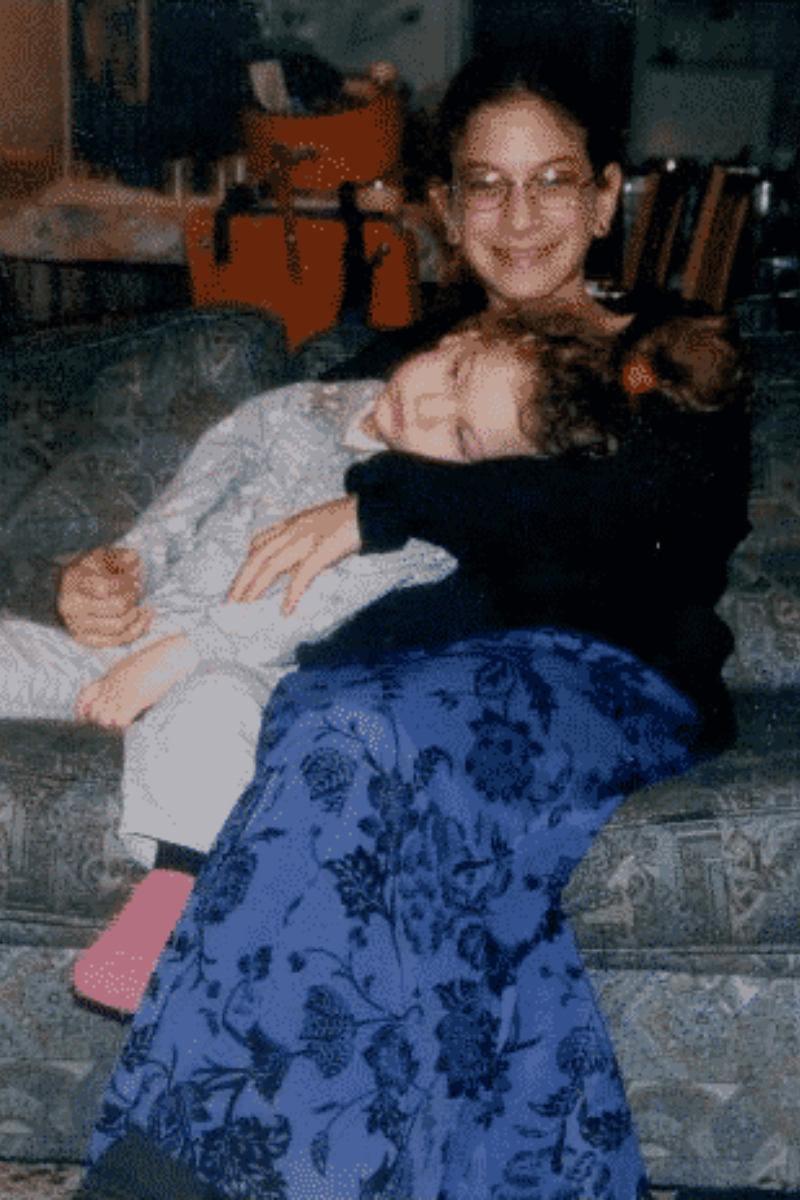It is every parent’s worst, most unimaginable nightmare.
August 9, 2001. A blistering summer day. At the time, Arnold Roth was the chief executive of a drug company in the technology hub of Jerusalem when his wife Frimet called – letting out a shaking, terrified howl just as he sat down at his desk after lunch.
“’There’s been a piguah,’ she screamed. My heart sank. That Hebrew word means a terror attack, and she managed to tell me it had happened in the center of Jerusalem a few minutes before, that it was all over the TV news and that she was trying to reach our children via their cell phones,” Arnold recalls. “Then she hung up.”
He remembers the hours that ensued as something akin to a “grotesque form of hell on earth.”
“Details began emerging of something horrific. Our three sons were located safe and well, and the focus was on the eldest of our daughters who was unaccounted for,” Arnold continues.
His cherished daughter, Malki, was a sweet-souled fifteen-year-old, and all they knew was that she and her childhood best friend had left together that morning for a full day of summer vacation activities. Now, in the full tilt of the mid-afternoon sun, she was not answering her phone.

Three weeks before al Qaeda operatives rammed hijacked planes into New York’s Twin Towers – forever altering the lens of Islamic terrorists – 5,700 miles away in the ancient streets of Jerusalem, terrorists murdered American citizens. The blast that day had ripped through the popular pizzeria Sbarro, and Malki – an American – was among the dead. The searing attack also claimed the life of a fellow American, the pregnant Shoshana Yehudit Greenbaum, and her unborn child. An additional four U.S. nationals were among the 122 severely wounded, and at least one of those victims remains in a vegetative state. In total, fifteen people lost their lives.
Two terror groups claimed the credit initially, but Hamas soon prevailed. Some weeks later, although Arnold struggles to remember the precise sequence, news outlets reported that several gang members responsible for escorting the bomber into Jerusalem that day had been arrested. And one was a woman: Ahlam Tamimi.
“It’s important for me to underscore how everything we learned about what happened came to us via conventional news outlets and social media,” Arnold recalls. “There wasn’t a single point at which government officials shared with us what they knew – not when they arrested the suspects, charged them, put them on trial, convicted them in court hearings, sentenced them, allowed the woman to be interviewed by reporters. All these [facts] we learned only when everyone else knew them via the media.”
It was Tamimi who drove a young Palestinian Arab male from Ramallah to the bustling Jerusalem restaurant filled with children. She then hid at a safe distance as the bomb concealed in the man’s guitar case was detonated in a haunting explosion.
Born and educated in Jordan, Tamimi – then a part-time, Ramallah-based television newsreader – was among the first women to be accepted into the shadowy ranks of Hamas. She is said to have spent much of the summer of 2001 scouting locations in the Holy City before settling on the family-friendly fast-food chain. By the time Tamimi appeared on the front page of a New York Times section, the devastated Roth family understood a little better the scale of the ordeal that had engulfed their lives.
“She was smiling broadly into the camera as part of a promotion for a documentary film being screened in the U.S., in which she was one of the focal points,” Arnold says. “It’s the woman who confessed happily to the Israeli court that she selected the massacre site the became the face of the Sbarro outrage because of the many Jewish children she spotted there on one of her test runs in Jerusalem.”
Tamimi pled guilty in an Israeli court two years after the Jerusalem attack for her pivotal role and was sentenced to 16 life terms plus an additional 250 years in prison. For the Roth family, the cataclysm of losing a child was made even more traumatic by the absence of communication.
“The only relevant government of Israel call my family or I ever received in all the years that followed, right up until today, was from an official in Israel’s Ministry of Justice,” Arnold notes. “That came in October 2011, eight years after Tamimi had been sentenced to sixteen terms of life imprisonment, with a strong recommendation from the panel of three judges that no consideration ever be given to setting her free in any future political deal or parole for any other reason. The call was from the head of the pardons board.”
The Roths were informed that Tamimi would indeed walk free. Tamimi was part of a prisoner swap whereby Israel set free over one thousand Palestinian prisoners for the safe return of a single Israeli soldier captured by Hamas four years earlier. The Hamas activists and sympathizers released were mostly sent to Gaza and the West Bank. Tamimi and her husband were among a handful relocated to neighboring Jordan under varying degrees of restriction.
The moment marked the start of the Roth family’s painful battle with multiple governments, reopening old wounds that had barely begun to heal.
It was Tamimi, from her perch in Jordan, who became one of the biggest faces of Palestinian terror, an embodiment of jihadist triumph, and the woman who did what so many others dreamed of but feared to do. So naturally, she soon got her own TV show. That happened in February 2012 and went on until September 2016.
Then, in March 2017 – after intense campaigning by the Roth family – the United States finally announced terror charges against Tamimi, which Arnold claims have been kept secret, “at the request of the U.S. government since a federal judge signed them off on them in 2013.”
More than two decades on, Ahlam Ahmad al-Tamimi remains one of the most wanted women in the world. The U.S. Department of State’s Rewards for Justice Program offers a $5 million reward for information that leads to her arrest or conviction, accusing the now 41-year-old of conspiring to use, and using, a weapon of mass destruction and orchestrating the fateful Sbarro bombings.
However, Tamimi lives freely and in plain sight of U.S.-allied Jordan even emerging as something of a revered public figure over the past decades, deluged with fan mail and support. Yet, despite repeated requests from Washington over several presidential administrations, the Kingdom has refused to extradite Tamimi, remains unrepentant and publicly reveling in her role to mastermind the massacre.
As a further insult, Tamimi continues to play the victim role, conveying her shock and dismay at a life gone awry since being named to the U.S. government’s Most Wanted List. She declared in an interview that, “the U.S. government, who is always trying to solve the problems of the world, especially in the Middle East, has decided to go after one woman for no obvious reasons.”
In March last year, Tamimi scored a significant victory when Interpol announced the convicted terrorist was “no longer subject to an Interpol notice” and abruptly wiped her listing from the website.
However, that is just the tip of the iceberg.
“In October 2020, Tamimi’s husband, who is also an unrepentant killer and was sentenced by Israeli judges to spend the rest of his life in an Israeli prison cell for an especially gruesome murder of an Israeli Jew, was freed (in the same prisoner exchange as his wife) and deported by Jordan,” Arnold says. “It’s not entirely clear where he is today since he has a much lower profile than his wife. But there are signs he is living in Qatar.”
Then, in October last year, Tamimi, speaking from her home in Amman, Jordan, delivered a fiery speech via video conferencing to an audience of Islamist women and girls in Turkey in which she reasserted how right she was to murder all those “Zionists.”
While the government in Amman has long argued that Tamimi cannot be extradited because there is no formal extradition agreement with the United States, lawmakers contend that the late King Hussein – who died in 1999 – did sign such a treaty on March 28, 1995. However, it was not signed into law by the Jordanian parliament, making the matter a murky one. In 2017, Jordan’s highest court ruled that Tamimi could not be extradited as the 1995 treaty had not been ratified, making such a move unconstitutional.
King Abdullah has the power to override a court’s decision, according to experts. However, it is also likely to spark outrage in the streets of the Hashemite Kingdom, where 70 percent of its population is of Palestinian descent. Nevertheless, Jordan has carved extradition exceptions in years past. For one, Jordan allowed Washington to extract Eyad Ismoil, a Jordanian national, to stand trial over his role in the 1993 World Trade Center bombing.
Furthermore, the U.S. is Jordan’s largest donor, providing over $1.7 billion in bilateral foreign assistance and over $200 million in Department of Defense funding to the country of 10 million each year.
Tamimi is still listed on Washington’s radar – although next to nothing has been done to move the needle in seeking justice for the slain U.S. national, the Roth parents proclaim.
U.S. Representative Greg Steube (R-Fla.) hopes to change that.
In April, weeks before Jordan’s King Abdullah II was scheduled to meet with President Biden at the White House, the Representative Steube introduced the Recognition of the 1995 Jordan Extradition Treaty with the U.S. Act which establishes a limit to U.S. assistance to Jordan until the Kingdom recognizes the validity of the 1995 extradition treaty between the two countries.
“Our U.S. tax dollars will not continue to flow to a country harboring a Hamas terrorist with American blood on her hands,” Congressman Steube stated. “The Government of Jordan fails to comply with a 1995 treaty that requires them to extradite individuals like Ahlam al Tamimi who face trial for terrorism under U.S. law. My legislation will ensure our foreign assistance to Jordan is abruptly halted until Jordan complies with our extradition treaty.”
The Roths are subsequently calling upon lawmakers from both sides of the political aisle to support the proposed legislation. But their relentless legal and legislative battle isn’t only focused on Washington.
“Malki was born in Australia, as was I. In the past four years, I have made three rounds of efforts to speak to the country’s top-level politicians in Canberra, requesting Australian intervention by them, asking the Jordanian ruler to do the right thing, to comply with the treaty and to send the savage who killed an Australian-born girl to face trial in Washington,” Roth tells me wearily. “Australia has had excellent relations with Jordan for decades, and its society, as I know from long experience, respects fair play and decency. But this hasn’t worked.”
Compounding the grief is the the fact that, in recent years, Tamimi and her family are urging the Jordanian King to “close the file” on the U.S. demands.
However, for the grieving Roth parents, giving up will never be an option. Appeals continue to be made to governments, congress, the state department, and the American public.
“The unrepentant murderer’s freedom and celebrity status sends a deplorable message: that in some societies, blood-drenched terrorists who execute cruel and inhumane acts of murder of innocents can evade justice,” the Roth parents state on their Change.org petition, appealing to the Secretary of State Anthony Blinken to take action.
The Roths remember every detail about their daughter: her zest and talent as a classical flutist, the tender way she cared for children with disabilities, including her baby sister, Haya, and her love of walking hand-in-hand with her mother even as a teenage girl.
“Malki has been gone for longer than she was with us. A young woman who didn’t reach her sixteenth birthday, she made herself loved and admired by a remarkably large circle,” Roth recounts. “Most people who knew her will speak of her warm and constant smile. Some will recall how she was always on the lookout for ways to help people in all kinds of ways. But what stood out was her specific passion for embracing, supporting, and engaging with children with special needs, starting with her own youngest sister, who is blind and profoundly brain-damaged and whom Malki adored.”
The road to some sort of accountability is bitter, but Arnold refuses to surrender in the fight for justice.
“The doing of justice ought never to be left to politicians. Justice is a core value, not a tactic and certainly not a partisan strategy,” he adds. “When members of the U.S. Congress stand with Jordan’s Abdullah, as so many of them do, that’s what they are supporting. And long-overdue justice for Malki and the other victims of Tamimi’s barbarism is what they obstruct.”






